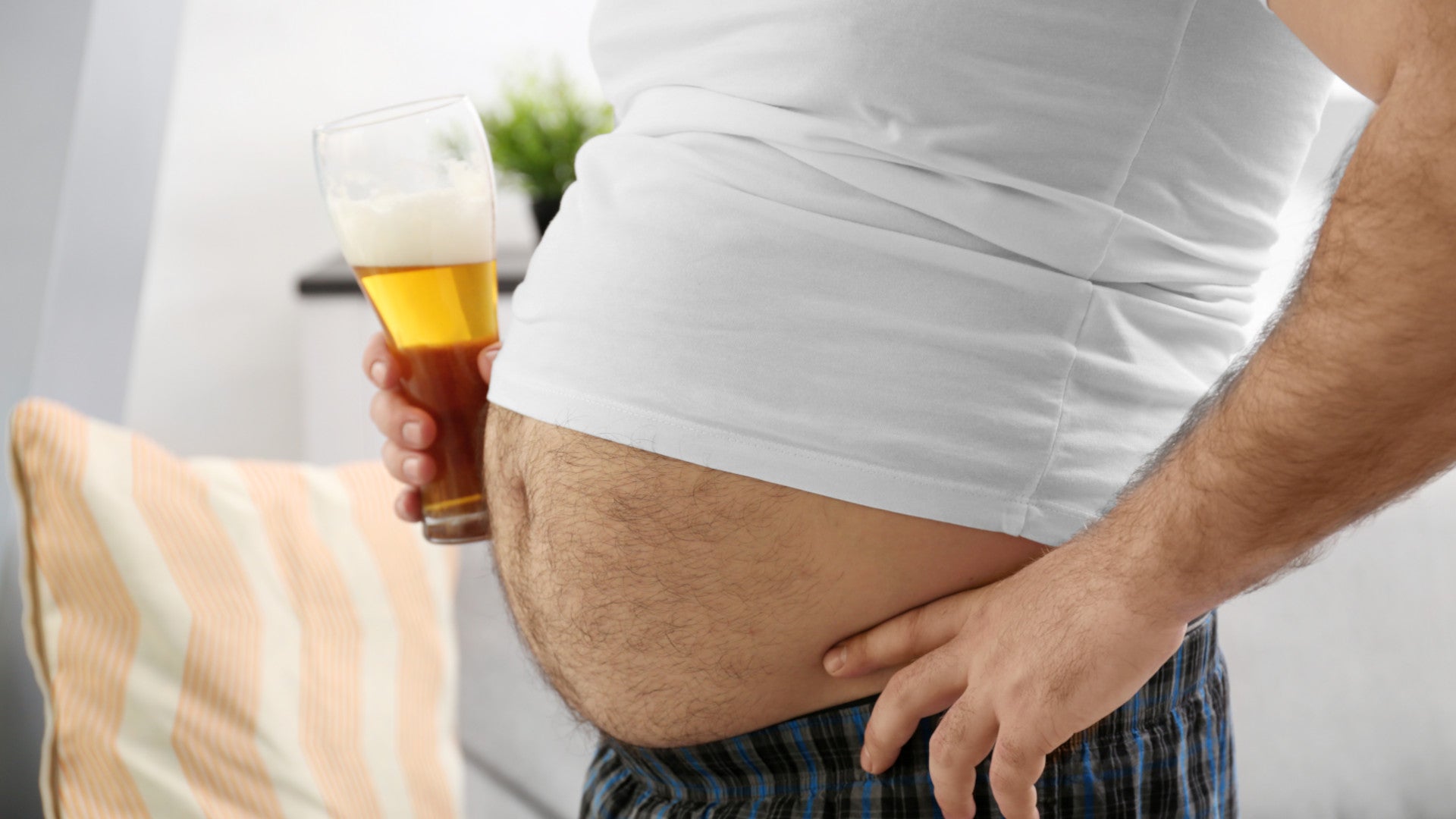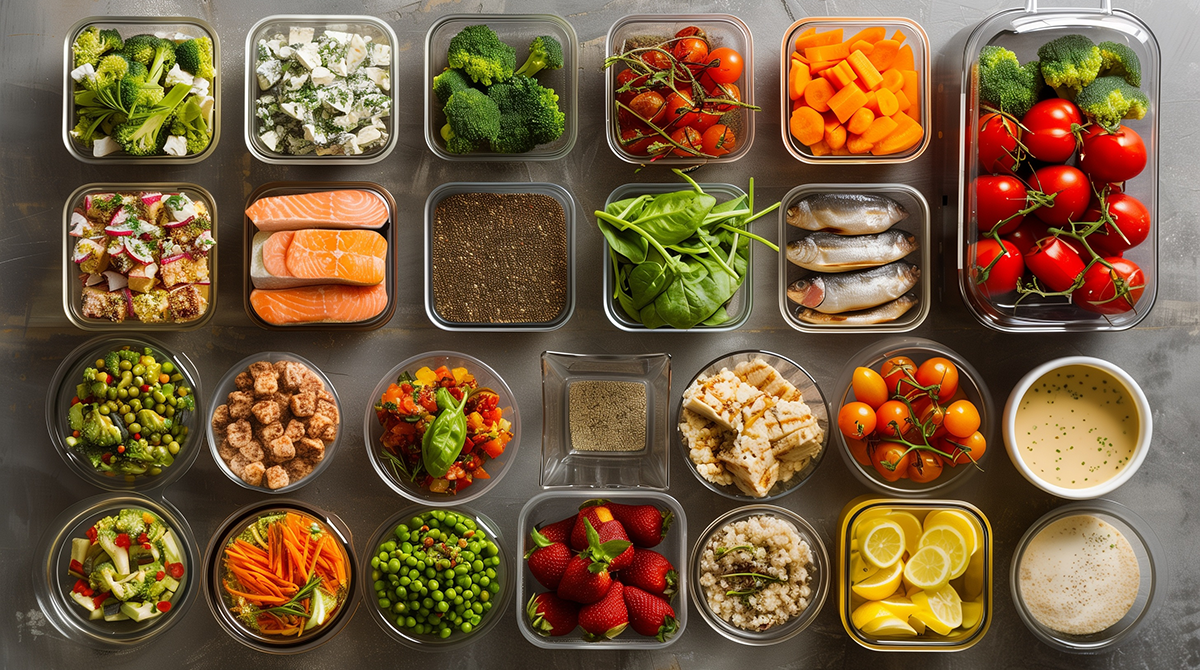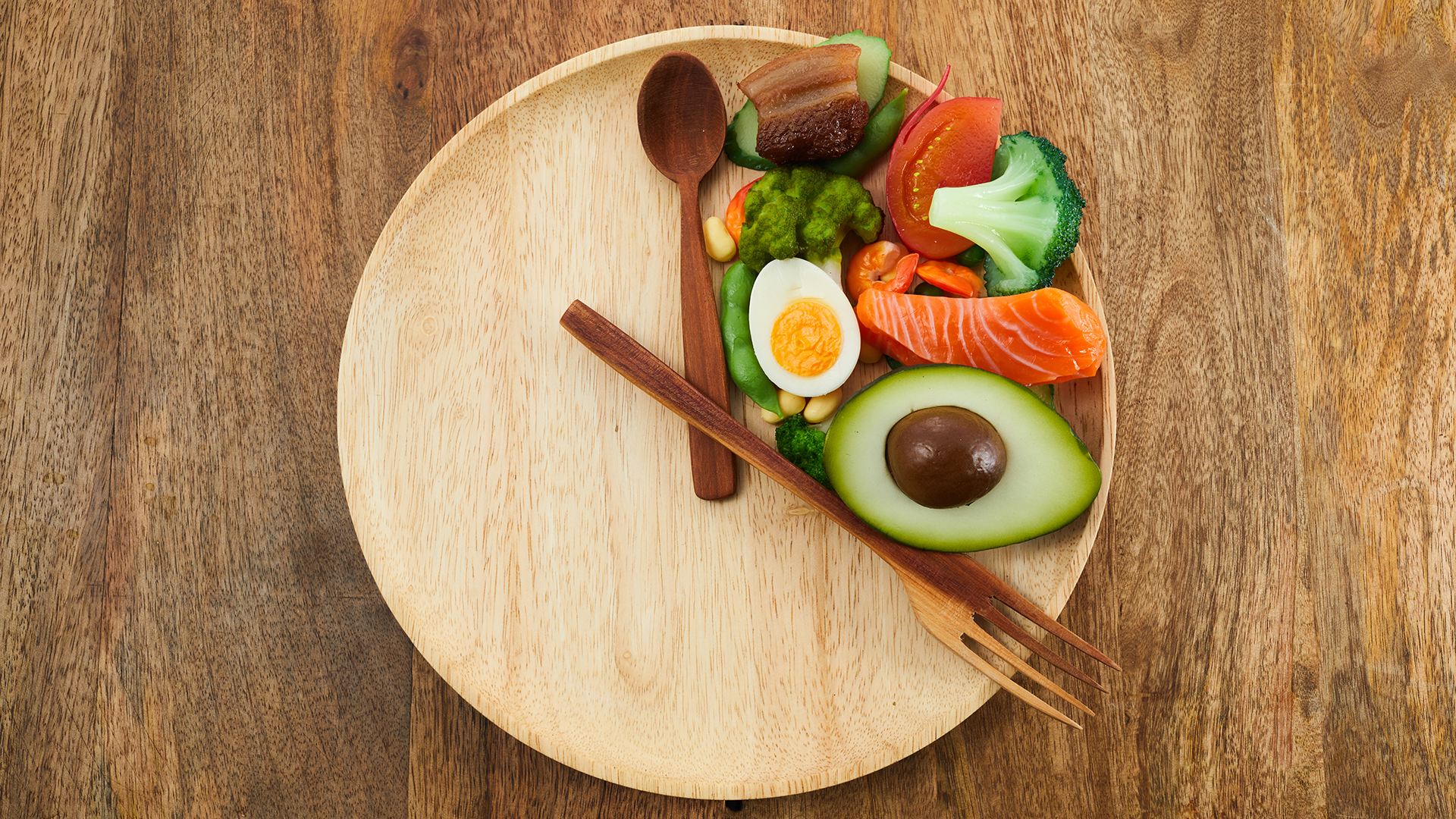If you’re on a weight loss journey, one of the questions you’ve asked yourself might be: “Can alcohol stop me from reaching my goals.”
Alcohol often forms a core part of many social gatherings and celebrations. And you’ve probably already guessed that, yes, excessive alcohol consumption can hinder your progress and set you back on your journey.
Not only is alcohol full of empty calories with no nutritional value, but it can also lower your inhibitions, lead to poor food choices, impact hormonal balance, and mess up your sleep routine—none of which are good for losing weight (or your health in general).
So, moderation is key for many reasons (not just in relation to weight gain). But that doesn’t mean you have to eliminate it entirely.
After all, limiting yourself and removing all the enjoyment from your life is a recipe for disaster when it comes to losing weight.
We’re all for making small, consistent changes that help you sustain your weight and lifestyle rather than removing the things you love from your diet.
So, whether you enjoy a regular drink or want to enjoy a special occasion by celebrating with a tipple or two, understanding the relationship between alcohol intake and weight gain can help you reach your goals while living life to the fullest. This will allow you to make mindful choices without derailing your hard-won weight-loss efforts.
Intrigued? Let’s get into how alcohol can impact weight gain and how you can manage the impact so that you can still enjoy your life while losing weight.
Does drinking alcohol impact your weight?
So does alcohol actually lead to weight gain?
You know that drinking too much alcohol can lead to a long list of health problems, with one of them being increased body fat.
Did you know? A study published by The Journal of Clinical Endocrinology & Metabolism found that women who consumed just one alcoholic drink per day had higher fat levels around their waists than non-drinkers after two years.
Beer belly, anyone…
When you put things into perspective, it highlights just how much impact even drinking a small amount of alcohol on a regular basis can have on your goals.
How much alcohol do you need to drink to gain weight?
As we said, small, consistent changes are what make your weight loss journey goals sustainable. So, we’re not suggesting that you cut out every drop of alcohol (there’s nothing wrong with enjoying a tipple here and there).
But, you should look at limiting your excess drinking. Just say ‘no’ to the binging where you can.

According to research, consuming light-to-moderate amounts of alcohol doesn’t result in weight gain. On the flip side, consistent heavy or binge drinking can lead to an increase in body weight over a period of time.
What constitutes heavy drinking, exactly?
The National Institute on Alcohol Abuse and Alcoholism (NIAAA) counts seven drinks per week (for females) and 14 drinks per week (for men) as heavy drinking.
So, if you’re including alcohol in your day-to-day, this might be the wake-up call you need to curb things a little.
Does the Type of Alcohol Matter in Weight Gain?
So, is all alcohol made equal?
Well, no. To some extent, the type of alcohol you consume will have an impact on potential weight gain.
Yes, alcoholic drinks vary in calories, sugar content, and even their nutritional profile. Sweetened cocktails and liqueurs, for example, tend to be higher in calories and sugar compared to spirits like vodka or whiskey. Plus, beer and wine are usually packed with more carbohydrates.
Opting for lower-calorie options like light beer or dry wine can help manage your calorie intake and potentially reduce the risk of weight gain.
If you fancy drinking low-calorie alcohol, then you might want to check out our list of the best alcoholic drinks for weight loss.
FYI: Whatever you drink, it’s still important to remember that moderation is key.
We’ll get onto why in just a second.
How does drinking alcohol make you gain weight?
Now we’ve established that alcohol can impact your weight, let’s dive a little deeper into how, and why, drinking can derail your weight loss efforts.
There are a number of ways that this can happen
Alcohol is full of empty calories
Alcohol contains what is known as empty calories. Yup, we know… it’s surprising because drinking can be so fun. But unfortunately, it doesn’t contain any nutritional value.
Remember, losing weight is ultimately all down to ‘calories in and calories out.’ What you consume doesn’t matter as much as making sure that you’re consuming fewer calories than you burn.

Alcohol is a carbohydrate that contains around seven calories per gram. Of course, different alcoholic drinks differ in their calorie content.
For example, a standard beer typically contains around 150 calories, and a glass of wine contains 120 calories, whereas some cocktails like margaritas are packed with around 300 calories or more because of added sugars or high-calorie mixers. Consuming multiple drinks in one sitting can quickly make the calories add up
And, alcohol doesn’t fill you up the same way that food does, so you can end up eating more (most of us have munched a late-night kebab at some point).
The high-calorie content, lack of nutritional value, and innate more-ish-ness of alcohol mean that it can be easy to over consume both alcohol and food. And if you’re not careful, you’ll pack on the pounds.
Alcohol intake leads to overeating
Alcohol and food intake are interlinked, and as well as adding calories to your diet, regular drinking can also lead to hunger and overeating.
A study published in the American Journal of Clinical Nutrition found that people who consumed alcohol had higher levels of ghrelin, a hormone that stimulates appetite, than those who didn't drink at all.
This hormone increases cravings for sweets like chocolate or cookies by stimulating dopamine production in our brains—and those cravings can last long after we've finished our drinks.
Plus, it’s much harder to make good food decisions when you drink alcohol (or the day after). A juicy burger or packet of crisps is going to be much more appealing after a few drinks than using that salad you have in the fridge.
This can lead drinkers who are already overweight or obese into an even worse situation, which is why many people who drink heavily have higher BMIs than non-drinkers.
Alcohol intake makes you process food differently
Drinking alcohol can also affect the way your body processes other nutrients. This is because it interferes with how your liver takes care of fat and sugars.
As a result, you can lose water, become dehydrated, and experience a drop in metabolism.
In addition to making you want more food, drinking may affect how your body processes other nutrients from your meals.

Did you know? One study found that women who drank wine with dinner experienced higher levels of insulin resistance than those who did not drink any alcohol at all.
This means their bodies were less responsive to insulin (which helps regulate blood sugar) after eating compared with non-drinkers.
Another study showed similar results among men after consuming beer as opposed to water during lunchtime meals. Beer drinkers, in particular, had higher levels of triglycerides and lower levels of HDL cholesterol than non-beer drinkers after just two weeks.
Alcohol intake can also make it harder for your body to absorb certain nutrients from food--including vitamins A, D, and K; calcium; magnesium, potassium, and iron—and make them less available for use by the body as a whole.
The combination of these effects means that alcohol intake may lead to nutrient deficiencies over time if you don't get enough from other sources like fruits and vegetables or supplements.
Alcohol impacts metabolism and fat storage
There’s no getting around it: Alcohol is a toxin.
This means that when you consume alcohol, the body recognizes it as a toxin, and it takes the front seat in the metabolic process.
As a result, your metabolism of other macronutrients, like carbohydrates and fats, becomes temporarily halted. This interruption in the metabolic process can lead to an increase in fat storage.
Plus, the breakdown of alcohol produces acetate, a substance that inhibits fat burning.
All in all, these factors lead to weight gain and make it more challenging to lose body fat while consuming alcohol.
Read: Our essential guide on how metabolism affects weight loss.
Alcohol impacts hormonal balance
Hormonal balance plays a crucial role in weight regulation—and alcohol consumption can disrupt this balance by affecting hormone levels in the body.
For instance, alcohol can increase cortisol production, a stress hormone associated with weight gain. So, drinking can lead to weight gain, particularly in the abdominal area.

Also, alcohol intake can disrupt the balance of insulin, a hormone involved in regulating blood sugar levels. These hormonal imbalances can result in weight gain and make it harder to achieve your goals around weight loss.
Alcohol disrupts sleep
Sleep is an underrated part of a healthy lifestyle (but it’s so important), and this also impacts your ability to lose body fat. Consistent alcohol consumption can disrupt your sleep patterns, sapping you of energy when you need it most.
Alcohol acts as a sedative, initially making individuals feel drowsy and facilitating sleep onset. But, as the night progresses, your sleep quality deteriorates.
This sleep disruption can affect hormone regulation, appetite control, and metabolism, all of which can contribute to weight gain.
Prioritizing quality sleep and minimizing alcohol consumption before bedtime is crucial for weight management.
FYI: As a general rule of thumb, if you do have a drink in the evening, try to have your last tipple around two hours before bedtime to maintain a solid sleep pattern.
Alcohol intake dehydrates you
If you’ve ever woken up the day after drinking, you’ll know that it can leave you feeling parched.
Hydration is key to a healthy lifestyle. Why? Because feeling hydrated keeps you full and stops you from overconsuming food.

Plus, drinking enough water can help you digest your food better. In fact, research from Loyola University Chicago suggests that hydration helps break down food to aid digestion.
So being dehydrated after significant alcohol intake can impact your ability to digest food, and lead to weight gain.
How to drink alcohol and not gain weight
As we said, we’re not suggesting that you cut out alcohol from your diet completely. But there are some ways you can still drink alcohol, enjoy your life, and see the number on those scales go down.
1. Drink in moderation
Like everything, you should consume alcohol in moderation. Set limits on the number of alcoholic drinks you will consume in a given period, and stick to it.
This doesn’t mean you can’t enjoy yourself, but you should make a plan for your meals if you know you’re going to have a day of heavier drinking.
2. Alternate alcoholic drinks with water
Why not try and alternate each alcoholic drink with a drink of water?
Drink water between alcoholic beverages to stay hydrated and reduce your overall alcohol consumption.

Not only will you feel much better the next day, but you’ll keep your hydration levels high. In turn, this will help avoid poor food choices and aid digestion.
3. Make sensible swaps
Be mindful of the mixers you choose, as some will have more empty calories than others.
Try to pick low-calorie mixers like soda water or fresh juice instead of sugary options to reduce your calorie intake.
Have a look at some of our favorite low-calorie alcohol drinks as well as some healthier cocktail options.
4. Make a plan…
Remember: Ultimately, it all comes down to calories consumed, so if you know that you’re going to drink alcohol, plan your meals and snacks accordingly to account for the extra calories. That way, you can still enjoy yourself without worrying about overconsuming.

Maybe meal prep some healthy, but delicious food for the day after so you don’t reach for those unhealthy, fatty snacks that can be so tempting with a hangover.
Will I lose weight if I stop drinking?
There’s no straightforward answer to this most pressing question. Your weight is not solely dependent on alcohol consumption. But of course, in the grand scheme of things, drinking will have an impact on your weight loss goals if you’re overdoing it.
So, no…we can’t guarantee that the weight will drop off if you lower or stop your alcohol intake.
But, if you’re consuming a lot of empty calories with alcoholic drinks and then overeating, reducing (or eliminating) alcohol might help shift some of the stubborn pounds you’ve been holding onto.
But like anything, moderation is important. For the best results, you should make any changes alongside a healthy diet and exercise plan if you want to reduce your body mass.
FYI: Supplements can also help you to boost fat burning and metabolism and to help you increase weight loss.
Should I stop drinking alcohol if I want to lose weight?
There’s no doubt that alcohol can be a good way to unwind and relax. And there’s no reason that for the sake of weight, you should eliminate it entirely.
But, like most things, drinking in excess will impact your health and can lead to weight gain.
Why?
Well, because alcohol is full of empty calories. It can impact your metabolism, appetite, food choices, hormonal balance, and sleep disruption, which all play a part in weight management.
While the type of alcohol you drink can influence weight gain to some extent, moderation remains the key factor. And so, if you have a set goal, you might find it useful to limit your alcohol intake.
By being mindful of calorie content, setting limits, and making informed choices, it’s possible to enjoy alcohol while maintaining a healthy weight.
Remember, finding balance is crucial, both in alcohol consumption—and overall weight management
If you do want to cut out alcohol completely, there are plenty of ways to enjoy yourself without it—and if that’s what works for you then go for it. You’ve got this.
It’s up to you to take control of your weight. Learn more about healthy weight management strategies and start your journey to a healthier you today.




